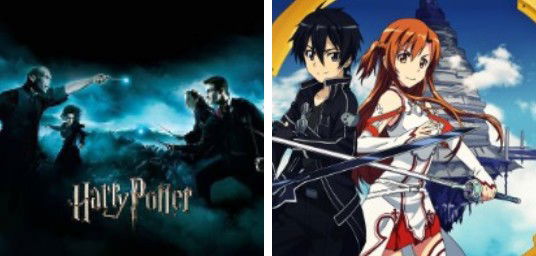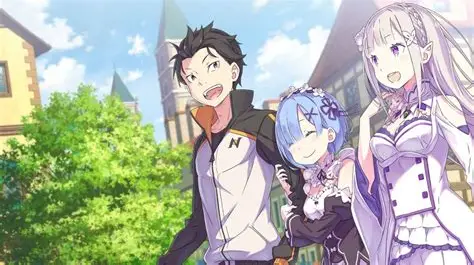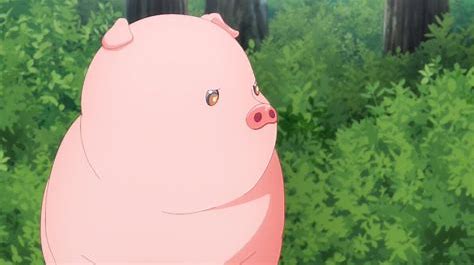Everybody loves Isekai. But at the same time, it seems like everybody hates Isekai as well. Isekai is simply an enigma because for every really good anime, there are five that are really, really, really bad. There are lots of good ones, but the genre has gotten a bad reputation over the past decade for being filled with slop.
The main culprit appears to be oversaturation. Every season, there are between two and five new Isekai series, if not more. Isekai is everywhere, but people don’t question it because, no matter how bad it gets, the genre is still really popular. A direct consequence of oversaturation is running out of ideas fast.
Over the past few years, we’ve had Isekai about a guy turning into a sword, a dog, a vending machine, a pig, and a girl. The more ideas come into play, the more writers need to scrape the bottom of the barrel for new stories. At the surface, this appears to be the big reason that Isekai gets such a bad reputation. But I don’t think that’s really the case.
Whether it’s a good Isekai or a bad one, it’s always fun to step in someone else’s shoes and join them on their adventure. But how is this different from normal fantasy? What separates Kazuma and Subaru from Tanjiro and Frieren? To best explain this, I need to share why I enjoy the genre.
I have two main “excuses” for liking Isekai. The first is that Isekai protagonists tend to be more relatable. Things might not stay like this throughout the entire series, but it’s easier to insert yourself into the story if the character is also from Earth or has had similar experiences.
My second excuse is that I love how the worlds are introduced and explained. With normal fantasy, you’re thrown into a world that already exists with characters who already know everything there is to know about the world, because they live in it. Writers must come up with clever reasons for keeping the character independent from the story until the time is right.
Frieren uses the time skip. Attack on Titan uses the wall. Fairy Tail begins from the perspective of Lucy. It’s hard to explain the world a character already lives in without pulling some strings or making them sound ignorant, oblivious, or just plain dumb.
In Isekai, the protagonist is coming to the new world at the same time as the viewer. It makes sense for them not to know anything about the world, and it’s a great way to freely shove lore down our throats. I love this kind of storytelling. I love watching characters experience everything for the first time, as if they were us.
A few years ago, I was watching Trapped in a Dating Sim, and I began to question why I enjoyed that formula so much. I did some digging and made a surprising discovery, one that I don’t think many people realize. Turns out we’ve all been watching Isekai our whole lives.
The general definition of Isekai is being transported to another world, but it’s fairly loose in what another world means, or else there wouldn’t be people who believe that Sword Art Online counts. But just because something isn’t a fully fledged Japanese Isekai doesn’t mean that it can’t have a lot of Isekai themes.
Hollywood just so happens to have had many projects during the 1990s and 2000s that are basically lite versions of Isekai. Many young adults and anime fans of our generation grew up with these projects. I believe that these projects influenced people’s assumptions about Isekai before even getting into anime.
I’m talking about franchises like Harry Potter, Percy Jackson, Artemis Fowl, The 39 Clues, and many others. These were huge phenomena when I was young, and they all have something in common. Harry Potter is a seemingly normal kid who gets dragged into the huge wizarding world. Percy Jackson is a seemingly normal kid who gets dragged into the world of Greek mythology.
The list doesn’t end there. Inkheart, The Spiderwick Chronicles, Gravity Falls, and even A Series of Unfortunate Events all fall under this category. None of these actually took place in other worlds, but to both the viewer and protagonist, it was. The secret world was always there, but the protagonist gets dragged into it.
I first read Harry Potter when I was 11, and I’ll always have the moment where he finds out he’s a wizard engraved in my mind forever. I loved everything about the wizarding world. I loved how Harry was introduced to everything, and I loved the contrast between Harry learning about the world and the people who were already there.
By the time I turned 20, I had seen so many of these kinds of shows and movies that I already knew what kind of stuff I liked about these kinds of stories. That kind of thinking stuck with me through my later years when I finally started watching more anime and Isekai.
There was a stretch in 2021 where I watched only Isekai for over three months. This included Cautious Hero, Shield Hero, Re:Zero, Konosuba, In Another World with My Smartphone, and How Not to Summon A Demon Lord. I couldn’t figure out why at the time, but I loved all of them, and Isekai quickly became my favorite genre.
I didn’t realize it at the time, but I was subconsciously conditioning myself through my teenage years to like certain aspects of going to “another world” when it comes to story and world building, character development, and even humor. Turns out that when I was watching these anime, I was subconsciously drawn to certain parts because I liked those same themes from Harry Potter, Percy Jackson, etc.
But then I realized that the opposite was true, too. There were lots of Isekai that I dropped or had no interest in to begin with. This included stuff like Saga of Tanya the Evil, Reborn as a Vending Machine, Demon Lord Retry, Death March To The Parallel World Rhapsody, and many others.
I did some digging and realized that oversaturation and scraping the bottom of the barrel for ideas weren’t the reason I didn’t like them. Many of them were ones that I did watch, but then dropped after two or three episodes. The concepts weren’t actually bad, but I didn’t care for them. I figured out that it’s because I was conditioned to enjoy certain Isekai themes and dislike others.
When my brain realized that some of these anime weren’t following the same formula that I enjoyed growing up, I began losing interest. I didn’t think that they were bad, my brain was just conditioned to like certain Isekai themes long before I even began watching Isekai.
That’s what I believe the real culprit is when it comes to why Isekai is on the decline despite being so popular. Everyone under the age of 40 has likely watched these kinds of movies and shows when they were young, and likely left an impression on the minds of people before they even started watching anime or getting really into it.
Oversaturation and scrapping the bottom of the barrel for ideas is obviously a big issue for Isekai, but it’s very hard to stay interested in certain themes and topics when you’ve been predestined to favor other topics and themes from such a young age.





